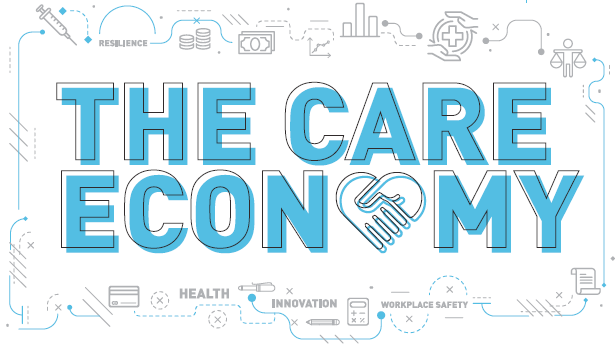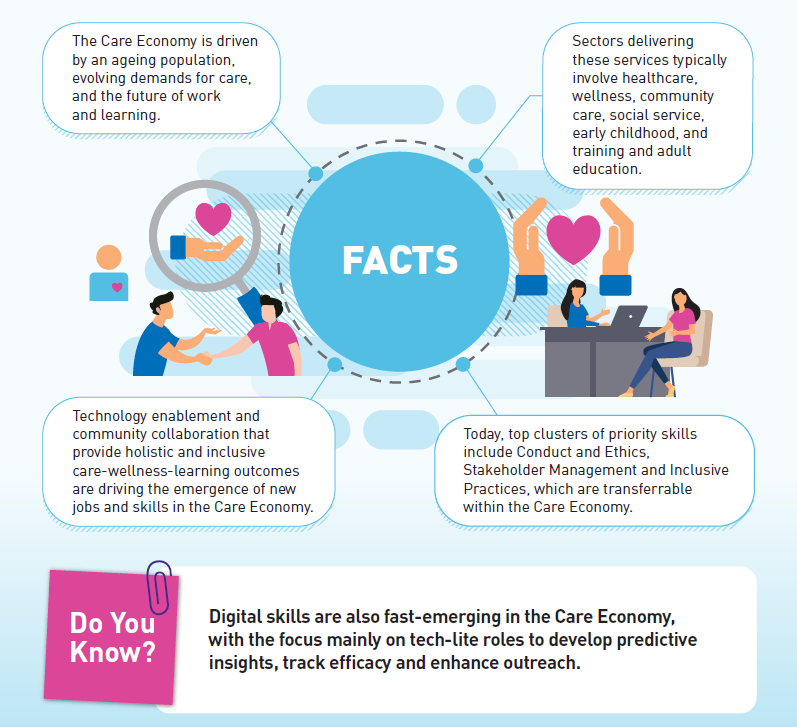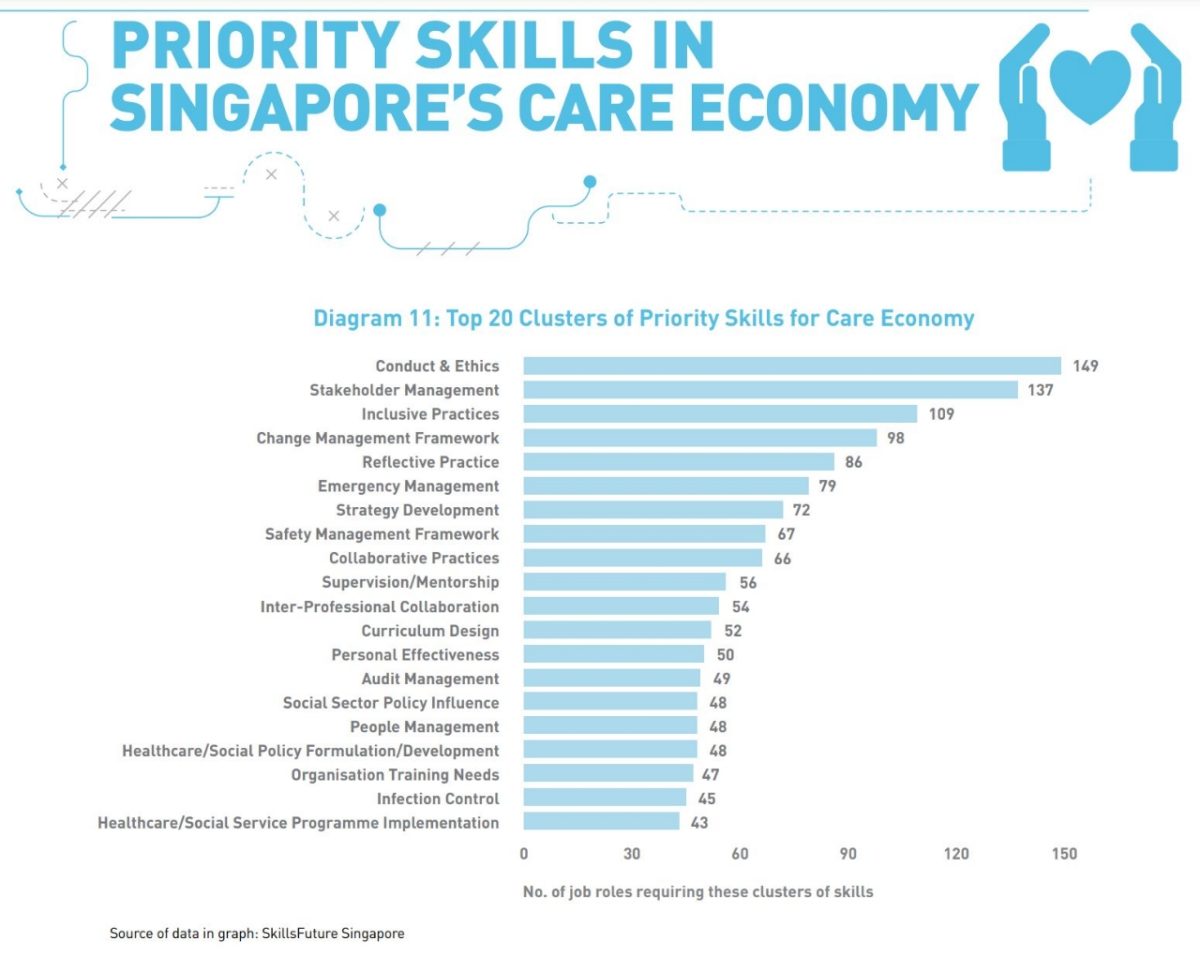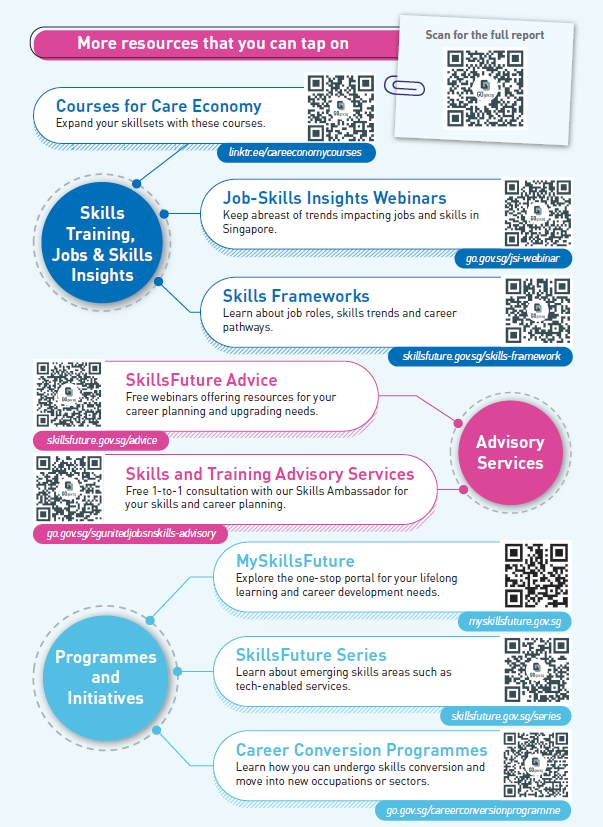The Care Economy offers care and support services that contribute to the nurturing and development of our current and future populations. The sectors delivering these services include Healthcare, Wellness, Community Care, Early Childhood, Social Service, General Education and Training and Adult Education.
With advances in technology and healthcare, people around the world are living longer, resulting in an increasing ageing population. This, together with evolving demands for care, has driven the Care Economy into becoming one the fastest-expanding economic sectors globally. The COVID-19 pandemic contributed to this as well, accelerating the need for a stronger care ecosystem.
A recent report of jobs by the World Economic Forum1 stated that by 2022, almost 40% of job openings in emerging professions will be in the Care Economy.
















